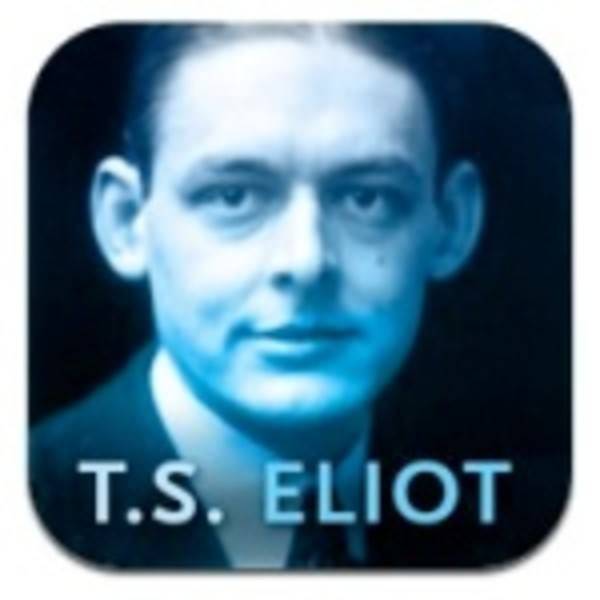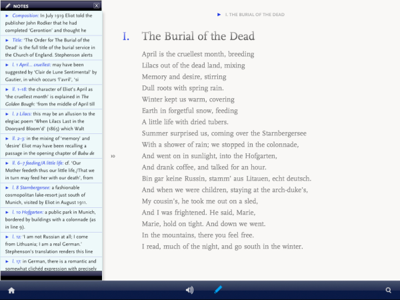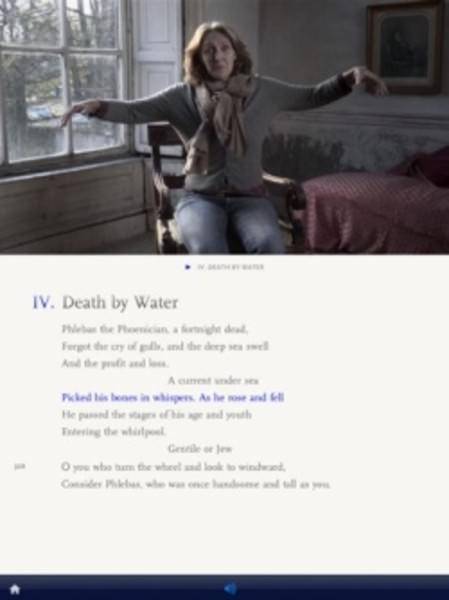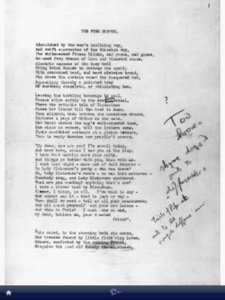There are plenty of pronouncements about “the future of the book” when it comes to the increasing popularity of e-books and the steady release of new digital literature apps. Indeed, the ability to add video, voice-over, animation, and annotation all point to the great potential when literature becomes electronic, and in coming years we’re sure to see a number of new creations that will challenge our definitions of “the book.”

But the while the possibilities of electronic literature and enhanced e-books sound good in theory, often they fail to deliver in practice. There are a lot of reasons why this occurs: it can be costly to add video or animation, and the integration with the text itself isn’t always seamless or sensible.
With this in mind, there are a lot of reasons to expect why an iPad version of one of the 20th century’s most important poems, T.S. Eliot’s “The Waste Land” could be a complete flop. It’s “The Waste Land” after all, a 430-ish line poem that is both incredibly familiar and notoriously difficult. Indeed, Eliot himself seemed aware of the challenges in interpreting the poem as he included his own lengthy notes when the poem was published in 1922.
“Shantih shantih shantih”
And that annotation – from the author almost 100 years ago – does hint at what an enhanced e-book should and could do best: offer more insights, more interpretations, more accessibility to a poem, without ever quite unraveling the puzzle entirely for the reader. (If you have read some of Eliot’s own notes on “The Waste Land,” you’ll know that his commentary hardly helps make the poem clear.)

But “The Waste Land” iPad app (iTunes link), released last week, is absolutely marvelous, and again, pronouncements about “the future of the book” aside, does demonstrate some of the brightest possibilities with digital literature. The app is a collaborative effort between Faber & Faber (which owns the rights to the poem) and Touch Press (the maker of the beautiful bestselling science e-book The Elements). It also includes video contributions from the BBC.
These videos include analysis and commentary from the poet and literary critic Craig Raine, novelist Jeanette Winterston, and punk rocker Frank Turner, among others. (If you feel bad for never quite “getting” the poem, then it might be quite consoling to watch the video where Irish poet Seamus Heaney talks about how the poem frightened him when he first encountered it.)

The app also includes a video of the great Irish actress Fiona Shaw performing the poem – a reading that is at once conversational and spell-binding. There are also audio recordings of a number of artists reading the poem aloud, including Alec Guinness, Ted Hughes, and Viggo Mortensen, as well as two recordings of Eliot himself. As you listen to these, you can following along with the highlighted text.
The app makes it incredibly easy to switch between these various recordings and readings to the text itself – turning the audio on and off, revealing and hiding the annotations and references.
“…breeding / Lilacs out of the dead land, mixing / Memory and desire…”
The app also includes a manuscript of the original poem, so you can see Eliot’s own handwritten notes and edits.

The app costs $13.99, and before you balk at this price, I’d ask you to think twice about an economy that demands all great literature will, from here on out, only cost you $2.99 or less. If you’re a lover of poetry or Modernist literature, you’ve easily spent this much to buy a bound copy. Why should we pay less, when it’s clear with “The Waste Land” app, we are getting so much more.
(And on a personal note: I must add an appeal here to the makers of “The Waste Land” app. I speak on behalf of myself and my colleague Curt Hopkins, who wrote about “Bloomsday” online just today. Please build a Ulysses app. Thank you.)

















